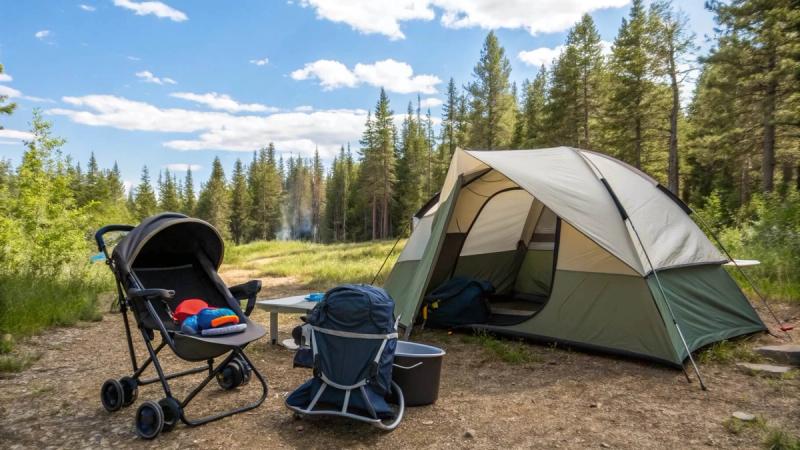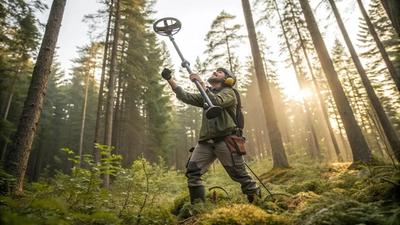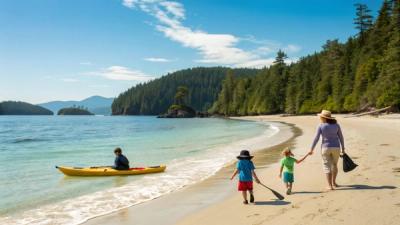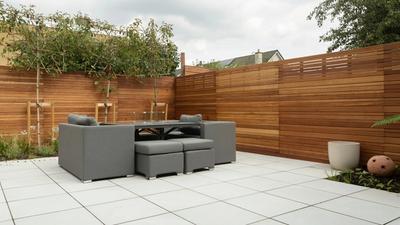
Arranging your first camping trip with your child? You're going to have a really fantastic treat! Seeing dancing campfire flames or hearing your baby's happy giggles as they feel grass between their small fingers for the first time makes nothing quite like it. Although at first the thought of camping with a baby may seem difficult, with enough preparation and the correct attitude, it can become one of your most treasured family memories.
From the immaculate beaches of Queensland to the tough beauty of the Blue Mountains, Australia's breathtaking scenery presents countless chances for family camping. Still, bringing your priceless bundle of happiness outside calls for careful thought and preparation. Everything you need to know will be walked through in this thorough guide to make sure your baby's first camping trip is absolutely magical, safe, and comfortable.
Choosing the Perfect Campsite for Your Little Adventurer
Choosing the perfect campsite for your little adventurer is essential. The basis of a successful camping trip with your child is choosing the appropriate spot. Not all campsites cater to families with young children equally. Look for established campsites that offer conveniences such as potable water, clean bathrooms, and possibly a camp store for any forgotten necessities.
Think through the distance from medical facilities while deciding where to go. Although everyone wants perfect sailing, having a hospital or medical centre within reasonable distance gives peace of mind. Many Australian national parks have family-friendly camping sections especially for young children in mind, with level ground for simpler tent placement and close access to necessary amenities.
Before embarking on this outdoor adventure, ensure any regular childcare or newborn daycare arrangements are handled back home, allowing you to fully focus on the trip. Examine seasonal conditions and select sites with natural shadow and windbreaks. Babies are more sensitive to temperature changes; thus, their comfort and safety depend mostly on avoiding severe weather.
Basics for Baby's Safety and Comfort
Packing for a camping trip with a baby calls for strategic planning and maybe a somewhat larger vehicle than usual! Add camping-specific products to your regular baby supplies to ensure your child's comfort throughout the trip.
Safe sleeping quarters depend absolutely on a portable travel cot or camping crib. Search for lightweight, simple-to-assemble solutions that give your infant a known sleeping space. Match this with suitable bedding, such as sleep sacks or sleeping bags made for newborns, so ensuring they retain the correct body temperature all through the night.
Remember to prioritise environmental protection. While weather-appropriate clothing layers help control your baby's temperature as conditions change, a good-quality baby sunshade or pop-up tent provides a shaded retreat during the day. Always ensure appropriate ventilation and safety procedures, pack extra blankets and think about bringing a small portable heater for cooler evenings.
Taking Care of Your Little Camper
Whether you are bottle-feeding or nursing, camping raises special issues for maintaining the well-nourishment of your infant. If mothers prefer to nurse, pack cosy nursing pillows and privacy screens. For both mother and child, having a specific, spotless area for feeding helps preserve comfort and routine.
For families who bottle-feed, give your water source great thought. Bringing bottled water specifically for preparing formula ensures consistency and safety. Maintaining suitable feeding temperatures can be much aided by a portable bottle warmer running on 12V power. If you prefer, don't overlook additional bottles, sterilising tools, and plenty of formula powder or pre-made bottles.
If your child is now on solid foods, camping is quite doable. While basic finger foods like banana bits or soft-cooked vegetables can be readily made over a camp stove, pre-prepared baby food pouches are handy and travel-friendly. To avoid any stomach problems, always keep correct food storage and hygiene habits.
Sleep Under the Stars
Making a cosy sleeping space for your child on a camping trip calls for careful planning. Everybody's enjoyment of the trip depends on your baby's sleeping schedule; thus, keeping familiar sleep cues and surroundings as much as possible will help to ensure peaceful evenings.
Think about the acoustics of the campground you selected. Babies used to the silence of their nursery could find strange outdoor noises startling. Operating on batteries, white noise machines can help mask environmental sounds and create a more familiar sleeping environment. Likewise, keeping regular bedtimes and sleep schedules helps your child feel safe in these new surroundings.
When camping, it is especially crucial to control the temperature during sleep. Camping calls for adjusting to natural temperature swings, unlike controlled indoor environments. Match your baby's sleepwear, and think about packing extra blankets for unanticipated cool spells or a tiny fan for warmer evenings.
Safety & Health Issues

Your first concern throughout the camping trip should be the health and safety of your child. Make a thorough first aid kit especially for baby needs, including thermometers, infant painkillers, and any prescription drugs your child needs. Before you reach your campsite, find out where surrounding medical facilities are located.
Babies, whose delicate skin is quite sensitive to UV radiation, depend absolutely on sun protection. Harmful rays can cause burns and discomfort even on hazy days. Invest in:
- UV-protective clothing
- Wide-brimmed hats
- Premium baby sunscreen (for those over six months)
For extra protection during the hottest sun, create shaded areas with tarps or umbrellas.
Still another crucial issue is insect protection. For everyone, mosquitoes and other biting insects can make camping unpleasant, but babies are especially sensitive. Protecting your child from bugs starts with baby-safe insect repellent, coveralls, and mosquito netting for sleeping quarters.
Recreation and Participation in Nature
Camping with her is a great way to show her the beauty of nature. Natural sensory experiences abound, and even very young infants can gain from them. Rich sensory experiences supporting development come from the sound of rustling leaves, the sensation of soft grass, and the sight of dancing shadows.
While you pack some of your baby's preferred toys, never forget the entertainment appeal of natural objects. A baby's interest can be piqued by smooth river stones, vibrant leaves, and intriguing sticks—of course—safely supervised. Remember that infants this age are exploring the world through their senses; thus, giving them safe chances to touch, see, and hear novel objects enhances their camping experience. Simple games like peek-a-boo behind tent flaps or singing songs around the campfire help familiar activities fit new surroundings.
Usable Advice for Camping Success
Good camping with young children usually boils down to sensible expectations and pragmatic preparation. Start with shorter trips near your house to test your systems and find any areas lacking in readiness. A weekend camping trip offers a wonderful experience free from the demands of a longer journey.
When camping with young children, organisation is absolutely vital.
- Establish specific storage spaces for baby goods to keep regularly needed supplies close by.
- Clearly label containers.
- Keep separate spaces for dirty and clean objects.
At nighttime diaper changes or feeding sessions when visibility is limited, this company becomes especially crucial. For families who enjoy the concept of camping but prefer more creature comforts, consider booking a nearby penthouse suite that offers panoramic views of the natural surroundings while providing all the amenities of home.
Related Posts

Is Metal Detecting in the Wilderness a Profitable Hobby?
Discover if metal detecting pays—learn which finds are valuable, how to price silver, manage costs, stay legal, and turn treasure into real cash.

What Outdoor Activities Can the Whole Family Enjoy on the Sunshine Coast?
Planning a family vacation to the Sunshine Coast? This Queensland paradise offers stunning beaches, lush hinterlands, and unforgettable wildlife encounters. From building sandcastles at Kings Beach to exploring the Glass House Mountains and visiting the Australia Zoo, there's something for everyone. Discover the best outdoor activities for all ages and create lasting memories on the Sunny Coast.

10 Outdoor Materials Compared: Which Is Right for Your Project?
Planning an outdoor project in Australia? Choosing the right materials is crucial for both aesthetics and longevity. From the natural warmth of timber and the timeless elegance of stone, to the modern appeal of metal and the low-maintenance convenience of composite decking, this guide compares ten popular outdoor materials. Learn about their pros, cons, and ideal uses to make an informed decision for your backyard paradise.